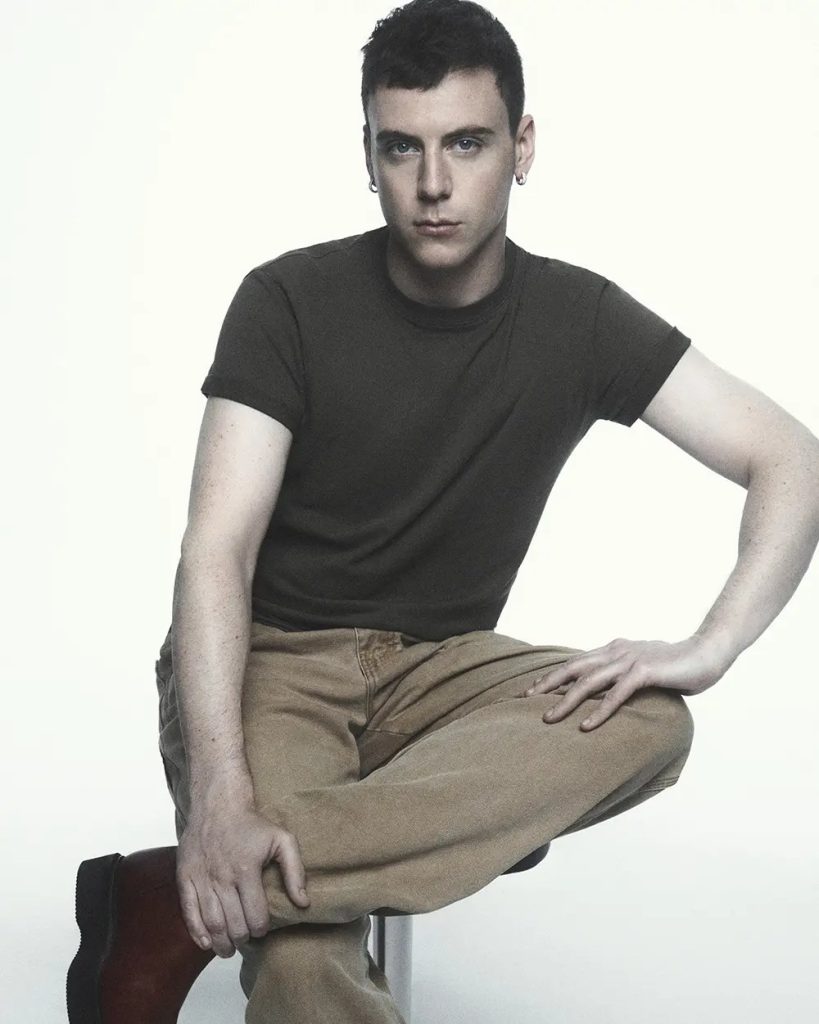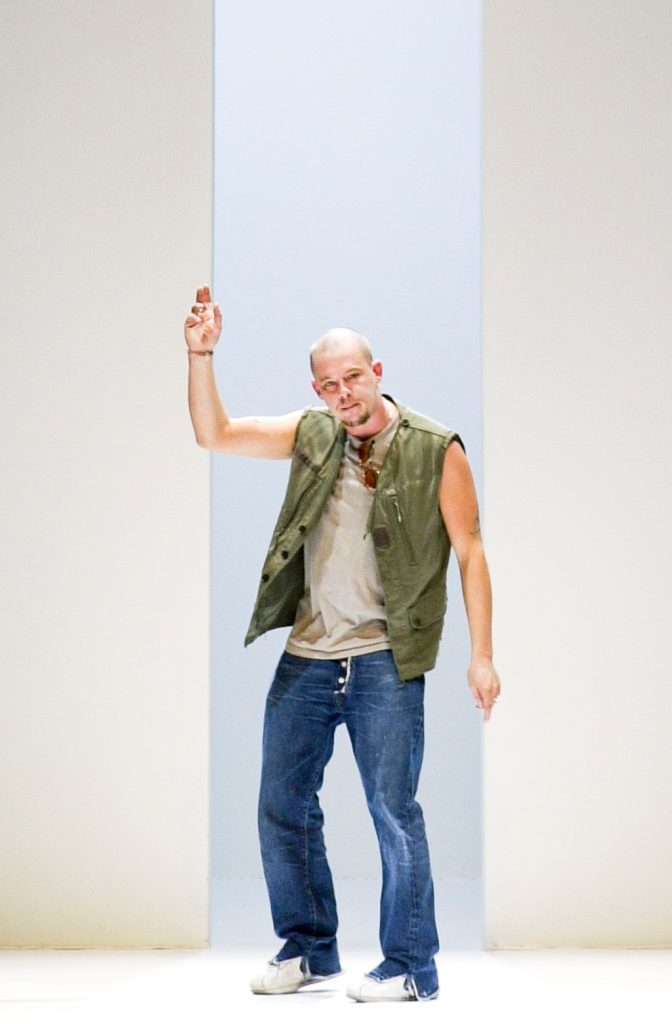
Though Lee McQueen’s namesake is possibly the last remaining attachment the Kering-owned luxuriate, Alexander McQueen, has to the late-vanguard designer, the fashion conglomerate’s executive team may be looking to the template he set with their successor to Sarah Burton.
Announced today, Kering revealed that the Irish-born, London-based menswear designer Seán McGirr will helm the hauntingly romantic womenswear label following the departure of Burton after 13 years at the label.
Burton staged her final collection for the Maison to a teary-eyed crowd that included her closest celebrity clientele like Elle Fanning and Cate Blanchet. The runway, in which Kaia Gerber opened the show and Naomi Campbell closed (and served as a fitting bookmark for Burton’s tenure), was equally melancholy as they lamented what felt like another death for the house.
But if the recent revolving door of creative directors has taught us anything, this fast-wheeling business of succession is the industry’s answer to our ferocious appetite for freshness. The atelier floor isn’t even cold, but nevertheless, Kering has thrust our next “wunderkind” into the spotlight. Enter stage right: Seán McGirr.
Unlike the months-long decision to replace Alessandro Michele at Gucci with Valentino’s Sabato De Sarno, Kering has looked outside its wheelhouse to the LVMH-affiliated JW Anderson. Most recently, McGirr oversaw JW Anderson’s ready-to-wear under the guidance of the eponymous designer Jonothan Anderson.
Previously, McGirr has held roles at Dries Van Noten and Uniqlo. He graduated from Central Saint Martins with a Master of Arts in Fashion in 2014.
Obviously, the parallels between McQueen and McGirr are apparent. Extending beyond the designer’s prefixed surnames and seemingly shared disdain for England–Irish McGirr surely would’ve aligned with McQueen’s position taken in the latter’s seminal Fall/Winter 1995 “Highland Rape” collection—perhaps Kering is placing their bets on moving someone familiar into the zeitgeist.
McGirr’s appointment also ensures that every top creative position at Kering is occupied by a man, which isn’t by any means McGirr’s fault, but, as pointed out by The Washington Post’s Rachel Tashjian, reflective of a larger issue seeded deep in the tissue of the industry.
Though, for a nascent designer with only three years of creative leadership under their belt, it must be said that McGirr has large Armadillo shoes to fill.

This article originally appeared on Grazia International
